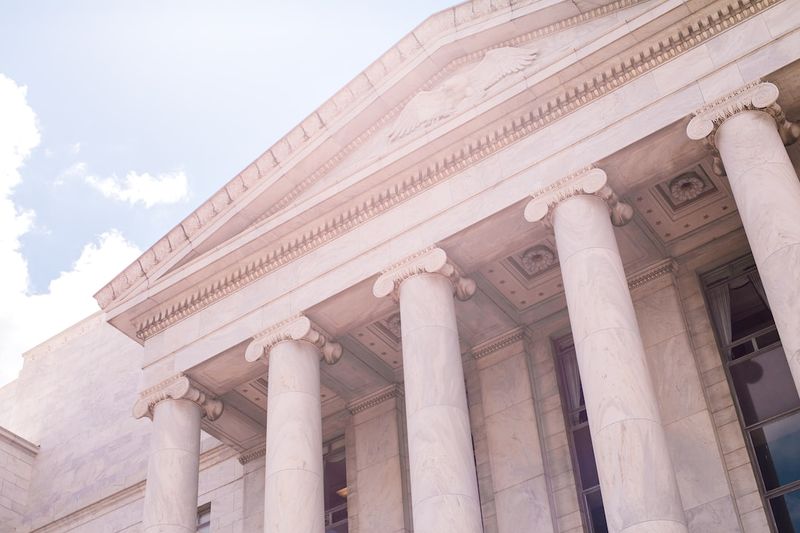Tony Blair Was Warned of ‘Appalling’ Attack on UK After 9/11
Newly declassified government documents have revealed that former UK Prime Minister Tony Blair was warned of the possibility of a terrorist attack on the United Kingdom even more devastating than the September 11 attacks in the United States. The warning came from ex-defence minister Sir John Stanley, who expressed his belief that terrorists would eventually obtain a “dirty” bomb, a portable nuclear device.
In the aftermath of the 9/11 attacks, Blair received a handwritten note from former Conservative Prime Minister Margaret Thatcher, praising his resolve and characterizing Britain as a staunch defender of liberty and a loyal ally of America. However, behind the scenes, Blair was privately warned about the threat of terrorism by Sir John Stanley, who pointed to previous terrorist attacks such as the 1995 Sarin attack in Japan and intelligence assessments suggesting the potential for a large-scale anthrax attack in the UK.
Assessing the Threat
Sir John Stanley called for a more comprehensive approach to national security, urging the government to assume that a terrorist attack using weapons of mass destruction (WMD) on a major city in the UK was not only likely but imminent. He recommended increased funding for national intelligence, the rebuilding of civil defense capabilities to deal with the aftermath of a WMD attack, and the provision of vaccines and anti-radiation supplies for protection.
Furthermore, Sir John advocated for closer surveillance and easier detention of suspected terrorists, as well as granting the government powers to determine security measures for both public and private buildings. His concerns were echoed by Iain Duncan Smith, the newly appointed leader of the Conservative Party, who urged the government to take Sir John’s warning seriously.
Government Response
In response to the warnings, Tony Blair assured Sir John Stanley that he had initiated reviews of anti-terrorist measures immediately after the 9/11 attacks. He acknowledged the need for new systems and procedures to be developed and implemented as quickly as possible, but emphasized that the greatest threat still came from conventional attacks rather than WMD.
Behind the scenes, the UK government took action to address the concerns raised by Sir John Stanley. Efforts were made to prevent WMD attacks and to develop countermeasures in case such attacks occurred. Operations such as “Operation Cyclamen” were established to detect radioactive material at UK entry points, and stockpiles of anti-viral drugs and decontamination vehicles were procured. The Prevent strategy was also implemented to prevent the radicalization of individuals and their support for terrorism.
According to Sir David Omand, who served as security and intelligence coordinator in the Cabinet Office from 2002, substantial work had already been underway to prevent WMD attacks before the warnings from Sir John Stanley. Emergency planning and counterterrorism measures were implemented quietly to avoid causing unnecessary fear among the public.
Editorial and Advice: Balancing Security and Civil Liberties
The declassified documents highlighting the warnings given to Tony Blair raise important questions about striking a balance between national security and civil liberties. At the time, there was concern that enhanced surveillance and detention powers could potentially infringe upon individual rights and freedoms.
In retrospect, it is clear that the government took decisive action to mitigate the threat of terrorism. Measures were implemented to enhance intelligence capabilities, secure borders, and bolster counterterrorism efforts. While some may argue that these measures went too far or that they were not sufficient, it is essential to acknowledge the complexity of dealing with the evolving threat of terrorism.
The challenge for any government is to ensure the safety of its citizens without undermining the very principles and values that terrorists seek to destroy. This requires a delicate balance between security measures and protection of civil liberties. Increased surveillance and intelligence capabilities must be accompanied by robust oversight mechanisms to prevent abuse and protect privacy. It is crucial to maintain a strong legal framework that upholds the rule of law, ensuring that security measures are proportionate and necessary.
Furthermore, the government should continuously engage with the public and stakeholders to build trust and transparency. Clear communication about the nature of the threat and the rationale behind security measures is essential to alleviate fears and maintain public support.
In an ever-changing security landscape, it is imperative for governments to remain vigilant and adapt their strategies accordingly. The warnings heeded by Tony Blair and the subsequent measures taken by the UK government emphasize the importance of proactive and preemptive actions in countering the threat of terrorism.
Ultimately, the goal should be to create a society that is both secure and free, where individuals can enjoy their fundamental rights without fear of violence or oppression. Achieving this delicate balance is an ongoing challenge, but one that must be confronted with the utmost seriousness and respect for democratic values.

<< photo by Charles Parker >>
The image is for illustrative purposes only and does not depict the actual situation.
You might want to read !
- Ant Anstead Breaks Silence: The First Glimpse Since News of His ‘Engagement’ to Renee
- Adidas Unleashes Controversial Arsenal Away Kit 23/24: A Bold Move or Fashion Fiasco?
- Arsenal’s Bold Departure: Exploring the Controversial Men’s Away Kit for 2023-24
- Witnessing History: Exploring Jon Snow, McEnroe, Football Icons, and Wham!
- Remembering the Life and Legacy of Religious Broadcaster Pat Robertson who died at 93
- The Growing Threat: Assessing the Increasing Terrorism Risk in the UK
- “Battle of the Titans: Karlsruher vs Liverpool Friendly – Live Updates and Match Analysis”
- Solved: Online Investigators Uncover the Mystery Object on an Australian Beach
- Rangers vs Newcastle: Tonali Makes Starting Debut as Saint James’ Battle Begins




